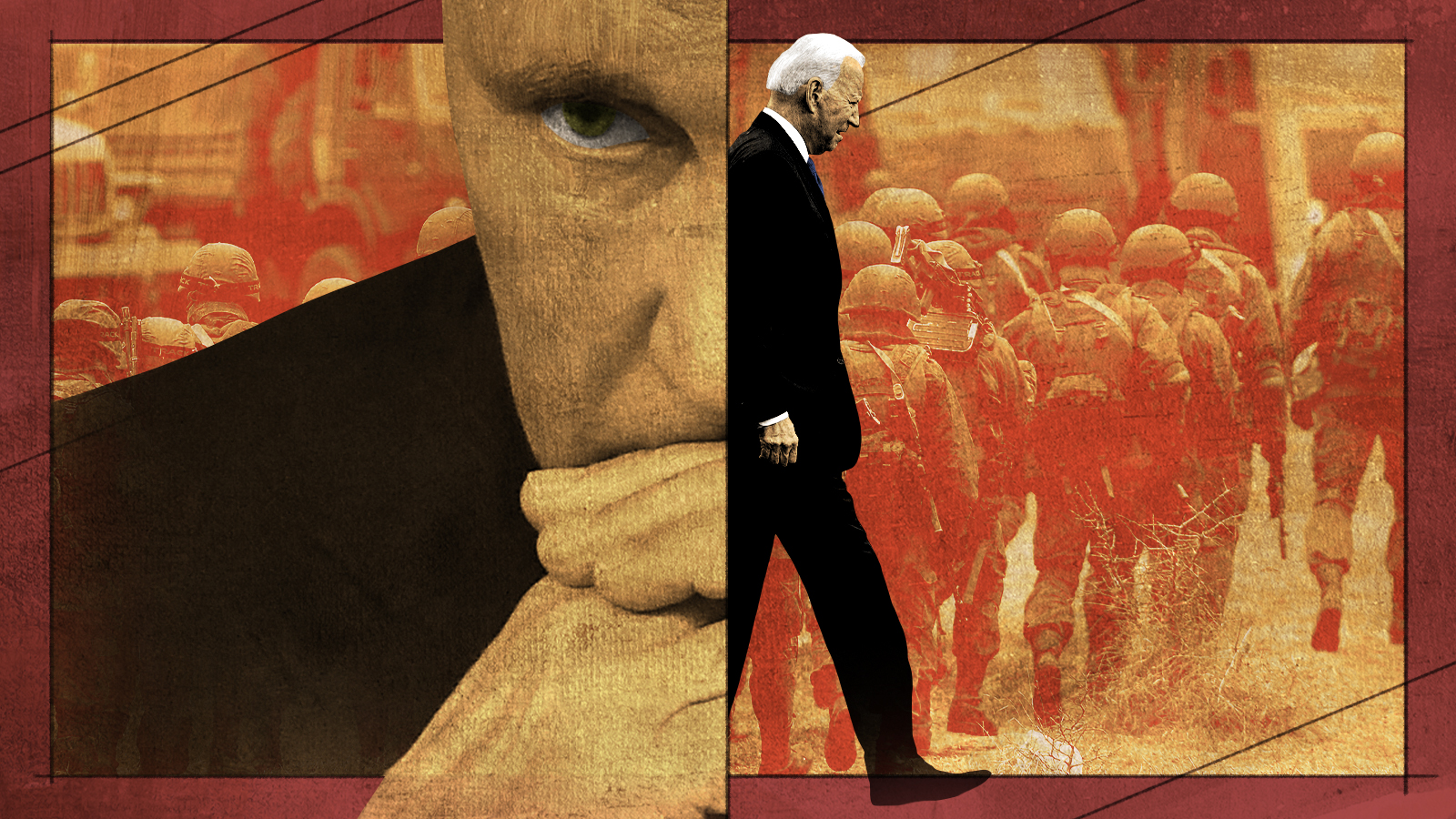The moral failure of considering Ukraine for NATO


A free daily email with the biggest news stories of the day – and the best features from TheWeek.com
You are now subscribed
Your newsletter sign-up was successful
Russian President Vladimir Putin's brutal invasion of Ukraine is fundamentally unjust, as wars of choice invariably are. The civilized world is correct to condemn the subjugation of a weaker country by a stronger one.
But morality in foreign policy isn't confined to alignment with the proper values and abstract principles, however important those are. Putin has no right to be doing what he is doing and bears the ultimate responsibility for the ensuing bloodshed. Yet he does have the power to do it. Policies designed to help Ukraine must be judged not only by their intentions, but by their real-world consequences.
Ukraine is a sovereign nation. That gives its government a right to join alliances of its own choosing. That may not, however, be wise given certain unpleasant yet unavoidable circumstances. Russia, a more powerful country, opposes Ukrainian NATO membership. Moscow is willing to go to war to prevent it. The Western powers correctly objecting to Russia's incursions are not willing to pay the same costs to defend Ukraine; they have thus far not even been willing to let Ukraine into NATO. Ukraine is unlikely to win a war with Russia on its own and will sustain great casualties trying to defend itself.
The Week
Escape your echo chamber. Get the facts behind the news, plus analysis from multiple perspectives.

Sign up for The Week's Free Newsletters
From our morning news briefing to a weekly Good News Newsletter, get the best of The Week delivered directly to your inbox.
From our morning news briefing to a weekly Good News Newsletter, get the best of The Week delivered directly to your inbox.
What good does it do Ukraine for the U.S. and its allies to defend the principle that it can join an alliance, yet not confer upon it any of the benefits of this alliance, at the risk of a Russian invasion? This principle may be right and Russia wrong in a cosmic sense. But what moral good is achieved if Ukraine's exposure to a bloody war is heightened instead? Even if Putin has expansionist designs beyond simply keeping the West away from his doorstep, which he clearly does, NATO expansion or half-hearted talk thereof does not automatically become a good idea if there's no real willingness to defend Ukraine from a Kremlin attack.
Foreign policy can be informed by what is good and true, but it can never be truly moral if it cannot realistically accomplish its objectives. Predictably setting people up for death and destruction can never be moral, even with the right intentions in contrast with Putin's murderous ones.
It's a lesson a superpower with 20 years of wars that either failed or yielded ambiguous outcomes should learn. Sadly, Ukraine may learn it instead.
A free daily email with the biggest news stories of the day – and the best features from TheWeek.com
W. James Antle III is the politics editor of the Washington Examiner, the former editor of The American Conservative, and author of Devouring Freedom: Can Big Government Ever Be Stopped?.
-
 The Olympic timekeepers keeping the Games on track
The Olympic timekeepers keeping the Games on trackUnder the Radar Swiss watchmaking giant Omega has been at the finish line of every Olympic Games for nearly 100 years
-
 Will increasing tensions with Iran boil over into war?
Will increasing tensions with Iran boil over into war?Today’s Big Question President Donald Trump has recently been threatening the country
-
 Corruption: The spy sheikh and the president
Corruption: The spy sheikh and the presidentFeature Trump is at the center of another scandal
-
 ‘The forces he united still shape the Democratic Party’
‘The forces he united still shape the Democratic Party’Instant Opinion Opinion, comment and editorials of the day
-
 Big-time money squabbles: the conflict over California’s proposed billionaire tax
Big-time money squabbles: the conflict over California’s proposed billionaire taxTalking Points Californians worth more than $1.1 billion would pay a one-time 5% tax
-
 Did Alex Pretti’s killing open a GOP rift on guns?
Did Alex Pretti’s killing open a GOP rift on guns?Talking Points Second Amendment groups push back on the White House narrative
-
 Washington grapples with ICE’s growing footprint — and future
Washington grapples with ICE’s growing footprint — and futureTALKING POINTS The deadly provocations of federal officers in Minnesota have put ICE back in the national spotlight
-
 Trump’s Greenland ambitions push NATO to the edge
Trump’s Greenland ambitions push NATO to the edgeTalking Points The military alliance is facing its worst-ever crisis
-
 Why is Trump threatening defense firms?
Why is Trump threatening defense firms?Talking Points CEO pay and stock buybacks will be restricted
-
 The billionaires’ wealth tax: a catastrophe for California?
The billionaires’ wealth tax: a catastrophe for California?Talking Point Peter Thiel and Larry Page preparing to change state residency
-
 Trump considers giving Ukraine a security guarantee
Trump considers giving Ukraine a security guaranteeTalking Points Zelenskyy says it is a requirement for peace. Will Putin go along?
